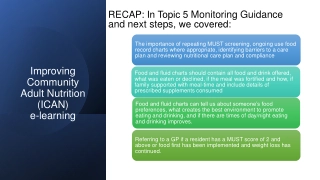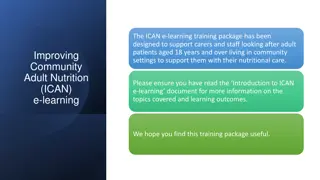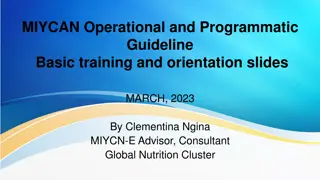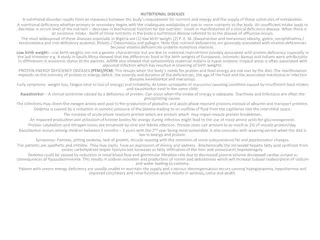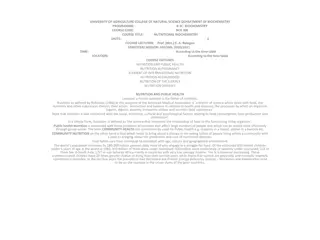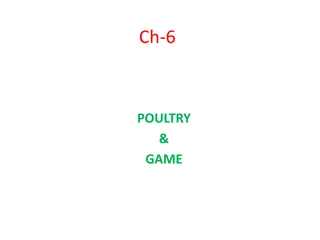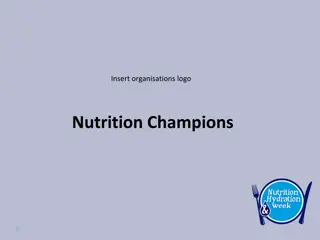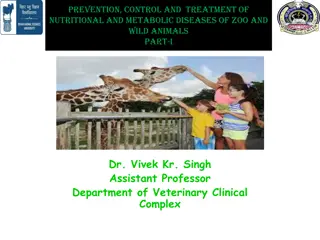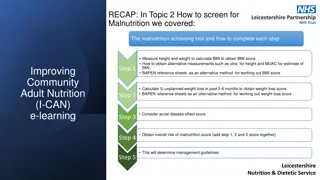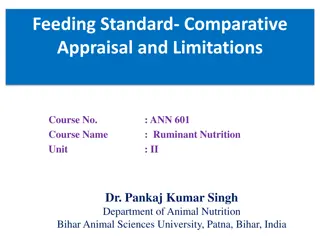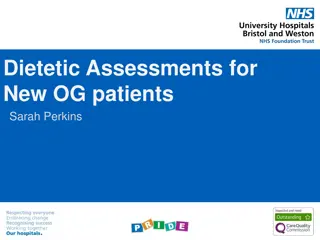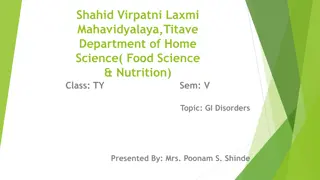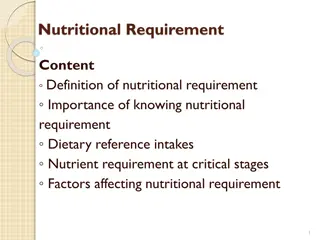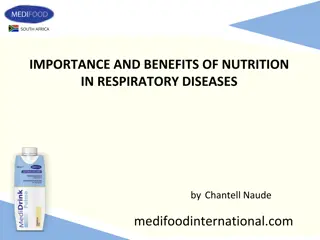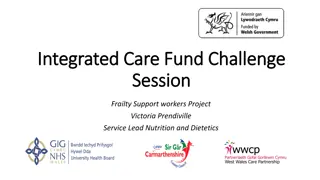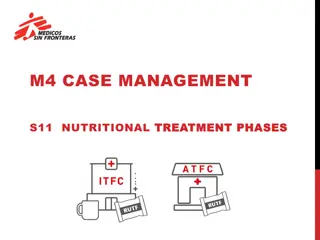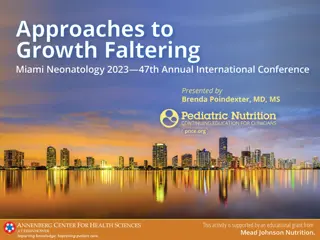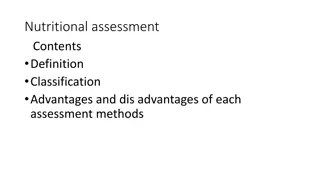
Insights into Child Health Nursing and Nutritional Needs
Explore the essentials of child health nursing, including definitions, risk factors for infant mortality, childhood mortality causes, roles of child health nurses, and nutritional needs of neonates. Learn about the importance of good nutrition in infant growth and development, and how early nutrition impacts lifelong health.
Download Presentation

Please find below an Image/Link to download the presentation.
The content on the website is provided AS IS for your information and personal use only. It may not be sold, licensed, or shared on other websites without obtaining consent from the author. If you encounter any issues during the download, it is possible that the publisher has removed the file from their server.
You are allowed to download the files provided on this website for personal or commercial use, subject to the condition that they are used lawfully. All files are the property of their respective owners.
The content on the website is provided AS IS for your information and personal use only. It may not be sold, licensed, or shared on other websites without obtaining consent from the author.
E N D
Presentation Transcript
Introduction to the Child health Nursing and Nutritional Need Lecture 1 1
Definitions Health is a state of complete physical, mental and social well-being and not merely the absence of disease or infirmity.(WHO) Pediatric Nursing or Child health nursing: is the specialty nursing care of babies and children. A nurse who specializes in this area is usually referred to as a pediatric nurse. 2
Definitions ..cont Mortality :Rate of occurrence death. Morbidity: a specific illness in the population (respiratory illness) Mortality of infancy: 200/1000 at the beginning of twenty century. 1. 2. Low birth wt <2500mg = Higher mortality Short or long gestational. 3
Other Risk Factors for Infant Mortality 1. Black race 2. Male gender 3. Short or long gestation 4. Maternal age (younger or older) 5. Maternal education 4
Childhood Mortality Injuries are leading cause of death in age >1 year 1. Motor vehicle crashes 2. Drowning 3. Burns 4. Poisoning 5
Roles of Child health Nurse 1. Therapeutic relationship. 2. Family caring. 3. Disease prevention 4. Health promotion 5. Supporting 6. Coordination 7. Ethical decision making. 8. Research 6
Introduction: Good nutrition is essential for the growth and development that occurs during an infant s first year of life. When developing infants are fed the appropriate types and amounts of foods, their health is promoted. 8
Feeding the Infant Early nutrition affects later development, and early feedings establish eating habits that influence nutrition throughout life. 9
Why Is Breast Milk So Good for Babies? Breastfeeding is a natural extension of pregnancy the mother s body continues to nourish the infant. The American Dietetic Association (ADA) and American Association of Pediatrics recognize exclusive breastfeeding for 6 months, and breastfeeding with complementary foods for at least 12 months, as an optimal feeding pattern for infants. 14
Breast milk is more easily and completely digested than infant formula, so breastfed infants usually need to eat more frequently than formula-fed infants do. During the first few weeks, the newborn will need approximately 8 to 12 feedings a day, on demand. As the infant gets older, there are longer intervals between feedings. 15
Immune Factors in Breast Milk During the first two or three days of lactation, the breasts produce colostrum, a premilk substance containing antibodies and white cells from the mother s blood. Breastfed infants may have: Less allergies Lower blood cholesterol Less ear and respiratory infections 17
Other Potential Benefits May protect against obesity in childhood and later years. May have a positive effect on later intelligence. 18
Formula Feeding Infant formulas are designed to resemble breast milk and nutrient composition. Special formulas are available for premature infants, allergic infants, and others. http://www.infantfeeding.info/RisksofAF.htm 19
Complementary feeding practices Different reasons to start complementary food can be highlighted: Breast milk is not enough in quantity: this is the main reason for the huge majority of the mothers. Breast milk is not sufficient to cover the infant s nutritional needs for growing. The mother has to go to work, so the child must be partially weaned. 21
Lactation Nutrient Needs Energy Intake need about +650 kcals to support milk production Exercise intense may raise lactic acid concentration of breast milk and baby may not like the taste Vitamin and Minerals maintained in breast milk at expense of maternal stores if poor 22
Water need plenty of fluids to prevent dehydration drink a glass of fluid at each meal Nutrient Supplements iron to replace stores often continue prenatal vitamins Particular Foods foods with strong or spicy flavors may alter flavor of breast milk. some infants may be sensitive to particular foods that mom eats 23
During Lactation Dont: Don t drink alcohol Don t take medications unless OK by Medical Provider Don t take illegal drugs Don t smoke Don t get into environmental contaminants Don t have caffeine 24
Consumer Corner: Formulas Advertising Advantage 25

